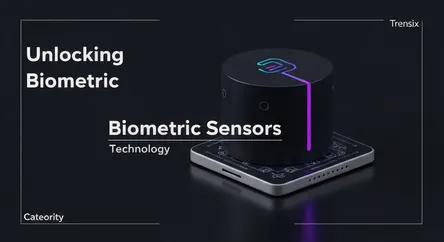Technology
Unlocking Biometric Sensors

Discover biometric sensors, the tech that identifies you by unique traits. Learn how they're securing our digital lives and personal devices.
What is it?
A biometric sensor is a hardware device used to capture and digitally convert a unique human physiological or behavioral characteristic. These traits include fingerprints, facial patterns, iris or retina structure, voice patterns, and even heart rhythms. The sensor acts as the initial interface in a biometric system, gathering raw data which is then processed by algorithms to verify a person's identity. Common examples are the fingerprint scanners on smartphones, facial recognition cameras in security systems, and heart rate monitors in fitness trackers.
Why is it trending?
Biometric sensors are trending due to the increasing demand for stronger, more convenient security solutions. As our lives become more digital, traditional passwords have proven vulnerable. Biometrics offer a password-less future, seamlessly integrated into everyday gadgets like smartphones, laptops, and smart home devices. The miniaturization of this technology and its lower cost have made it accessible to a mass market, driving its adoption in everything from mobile payments to corporate security and personal health monitoring.
How does it affect people?
Biometric sensors significantly impact daily life by enhancing both security and convenience. Unlocking a phone with a glance or a touch is faster and more secure than typing a password. In healthcare, wearables with biometric sensors provide continuous health monitoring, empowering users to track their well-being. However, this trend also raises significant privacy concerns. The collection and storage of unchangeable biological data create a high-value target for hackers. A compromised biometric database poses a much greater risk than a stolen password, sparking important debates about data protection and consent.